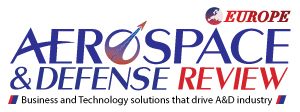What are the new trends or developments in the field of CNC Machining?
The discourse surrounding technological trends stimulates my intellectual curiosity, unparalleled by any other subject. Companies have spent much money creating new tools compatible with evolving technologies. These contemporary technical advancements present a learning curve that facilitates self-improvement and upgrades. New material problems are brought on by laser weapons and laser programs, notably for components and CNC machining. The leap towards hypersonics, which calls for different pressures and temperatures, and other environmental conditions are involved in these difficulties. Due to its divergence from our previous offerings, the defence sector's response to these challenges is anticipated to generate materials that hold potential appeal across various industries. Consequently, this may facilitate the dissemination of technological advancements.
What do you think are the major pain points that the CNC machining market is facing?
The issues about supply chains present a prominent challenge observed across nearly all industries. I am particularly concerned with this issue combined with the pandemic, the war in Ukraine and antiquity affecting the industry. All these atrocities have led to increased demand for solutions and products and a massive backlog within the business. Organizations must work closely with suppliers to identify gridlocks and improve efficiencies, predictability, and staff readiness to meet these demands. However, compromising on quality and effectiveness of products is not always the solution. At Raytheon UK, our utmost commitment is to deliver essential solutions precisely when required without compromising on fulfilling our customers’ objectives. Working closely with the team is crucial, but it is essential to recognize that all industries struggle with supply chain issues and must work together to address these barriers.
Are there any widespread misconceptions when you talk to your peers about CNC machining? How do you instruct them accordingly?
The current matter is the increased costs across the industry, driven by factors such as supply chain issues and inflationary risk. These expenses significantly impact employees since staff turnover may cause problems in the supply chain and product development that can result in the need for retraining and other problems. Addressing these costs and the impact on employees is a constant concern within RTX. Our teams are highly competent, but it is crucial to remember the value each employee brings to the business, and therefore investing in employees and training them to their optimal potential is vital.
How do you identify good partnerships when you develop new projects or initiatives?
Raytheon UK has made significant investments in digital engineering, allowing us to work with several partners in the early phase to explore potential client benefits. Using this method, we may swiftly undertake trade studies by combining materials, sensors, and other components into a digital model. Working together has hastened the creation of solutions that would not have been viable otherwise. We were able to design solutions at a faster pace that would not have been possible without Raytheon UK's program, which involves multiple suppliers. Through modelling, simulation, and hardware-in-the-loop testing, the firm must consider more options than would be accessible.
“At Raytheon UK, our utmost commitment is to deliver essential solutions precisely when required, without ever compromising on fulfilling our customers ' objectives.”
Additionally, Raytheon UK has collaborated with the MOD (Ministry of Defense) to use more sophisticated demonstrations, including laser projects, new weapon programs, and GPS jamming research. Through this method, the digital thread that feeds information into the production, service support, and live links for products is connected. Due to this, Raytheon UK has improved its military industry connections and increased the agility of its development methodology.
Do you foresee any major transformations in CNC machining in the coming years?
Data analytics is essential for understanding predictive failures in components like CNC machining and aircraft prognostics. It helps detect environmental changes, such as corrosion and combines data from other aircraft sensors to understand potential breaches better. Analyzing data generated across manufacturing facilities, like the Glenrothes office and Livingston in Scotland, can infer information about patents, equipment, downtime, and other relevant factors. This is particularly valuable in the defence sector, where robust answers have been obtained, especially as data moves to the cloud. Data analytics is a valuable tool for understanding predictive failures within components and enhancing factory efficiency. Companies can gain valuable insights and make informed decisions by analyzing data across various industries to improve their operations.





![Protecting and Analyzing Data from Unmanned Platforms at the Edge of the Battlefield $box_cxo_headline_new[cxo_ids]](https://www.aerospacedefenserevieweurope.com/newstransfer/upload/745-450x308_bvd5.jpg)
![Evolving Quality Assurance and Control for Advanced Manufacturing: An Opportunity for the U.S. Leadership $box_cxo_headline_new[cxo_ids]](https://www.aerospacedefenserevieweurope.com/newstransfer/upload/450x308_t7z0.jpg)
![Time to Bring the Benefits of Coalitions to Bear $box_cxo_headline_new[cxo_ids]](https://www.aerospacedefenserevieweurope.com/newstransfer/upload/Untitled-1-450x308_67U1.jpg)
![Navigating Aircraft Maintenance Quality Challenges: Insights from a Quality Manager $box_cxo_headline_new[cxo_ids]](https://www.aerospacedefenserevieweurope.com/newstransfer/upload/156-450x308_wVm3.jpg)
![Moog's Ascendance in the eVTOL/AAM Market: Insights, Achievements, and Future Endeavors $box_cxo_headline_new[cxo_ids]](https://www.aerospacedefenserevieweurope.com/newstransfer/upload/450x308_XHxS.jpg)
![Jetsetting Journeys: A Career Soaring from JFK to Unifi's Unique Aviation Landscape $box_cxo_headline_new[cxo_ids]](https://www.aerospacedefenserevieweurope.com/newstransfer/upload/450x308_f76K.jpg)

